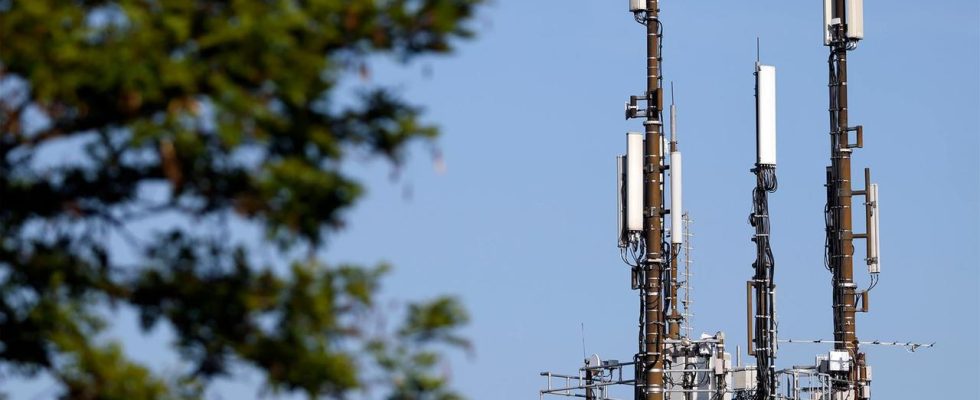In the past, the Federal Network Agency has awarded frequencies for mobile communications via auction every four to five years. This brought in billions for the state. But the upcoming auction will probably be canceled.
The auction of mobile phone frequencies for cell phone networks in Germany, which was actually planned for this year, is to be canceled. Instead, the Federal Network Agency wants to extend certain existing usage rights, as can be seen from an internal letter from the authority, according to information from the dpa news agency.
Waiver of income
As a result, the state network agency could lose billions of dollars in revenue. In 2019, around 6.6 billion euros were raised at the auction, and in 2000 even around 50 billion euros. An extension of the usage rights is likely to bring in comparatively low income for the federal government.
The established network operators, Deutsche Telekom, Vodafone and O2 Telefonica, are likely to benefit from the planned regulation. In contrast, the fourth provider 1&1 only has a small network so far and would have been very interested in acquiring new frequencies.
Conditions for operators
The change in procedure is likely to have several reasons. On the one hand, according to the established network operators, things are getting tight in the 800 megahertz band (MHz) – whose licenses are now to be extended. According to the operators, there is too little spectrum in this radio band to be easily divided by four users rather than three.
The Federal Network Agency had already agreed to this point of view months ago. The operators refused to swap frequencies with spectrum from other bands. 1&1 had requested such an exchange. So far, 1&1 customers are still connected to the O2 mobile phone network and in the future to the Vodafone network – this as part of a “national roaming” contract.
On the other hand, the authority is likely to combine the extension of the existing frequencies with a demand from Deutsche Telekom, Vodafone and O2 Telefonica: the mobile phone companies should undertake to improve their networks in rural areas. The 800 MHz frequency band is also considered an “area network”, it requires fewer cell phone masts and is therefore better suited to reach more users in rural areas.
No final decision yet
The Federal Network Agency plans to present the rules that have now been developed for an extension of the existing frequencies to its advisory board on May 13th. According to the internal letter, there will be a “competitive procedure” later – i.e. an auction that will not take place for a few years.
The regulation has not yet been finally decided. It’s about a “consultation draft” that market participants can comment on in the coming months. However, the draft is considered a preliminary decision – and a change of heart on the part of the authority is considered unlikely.

